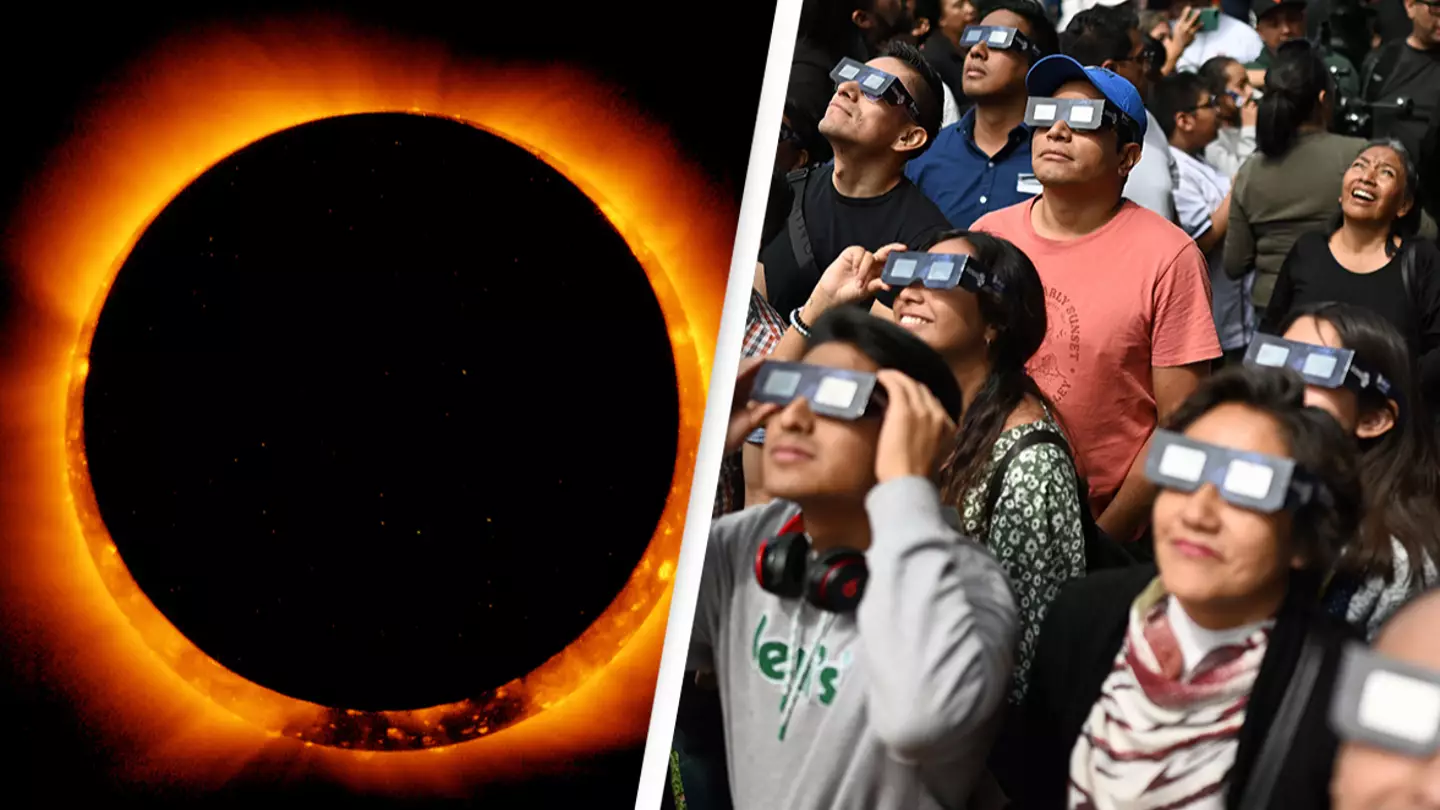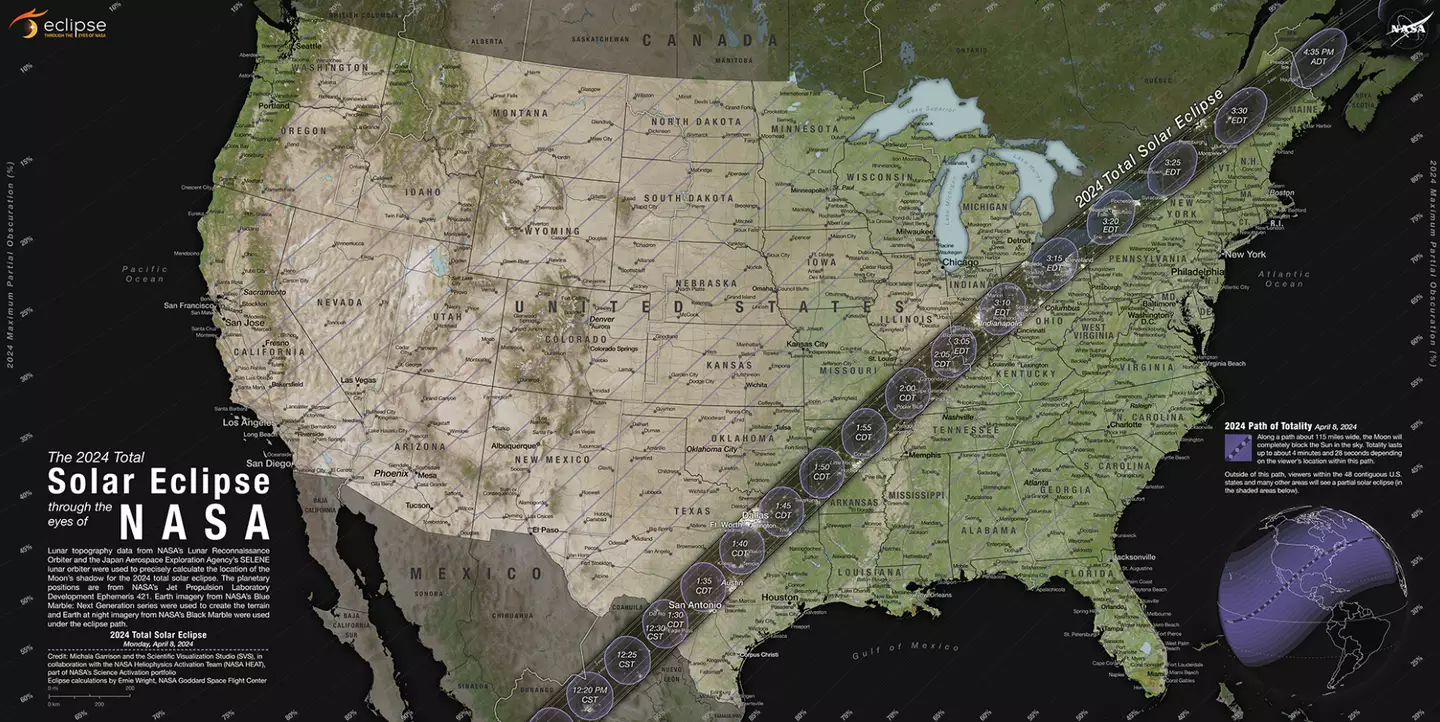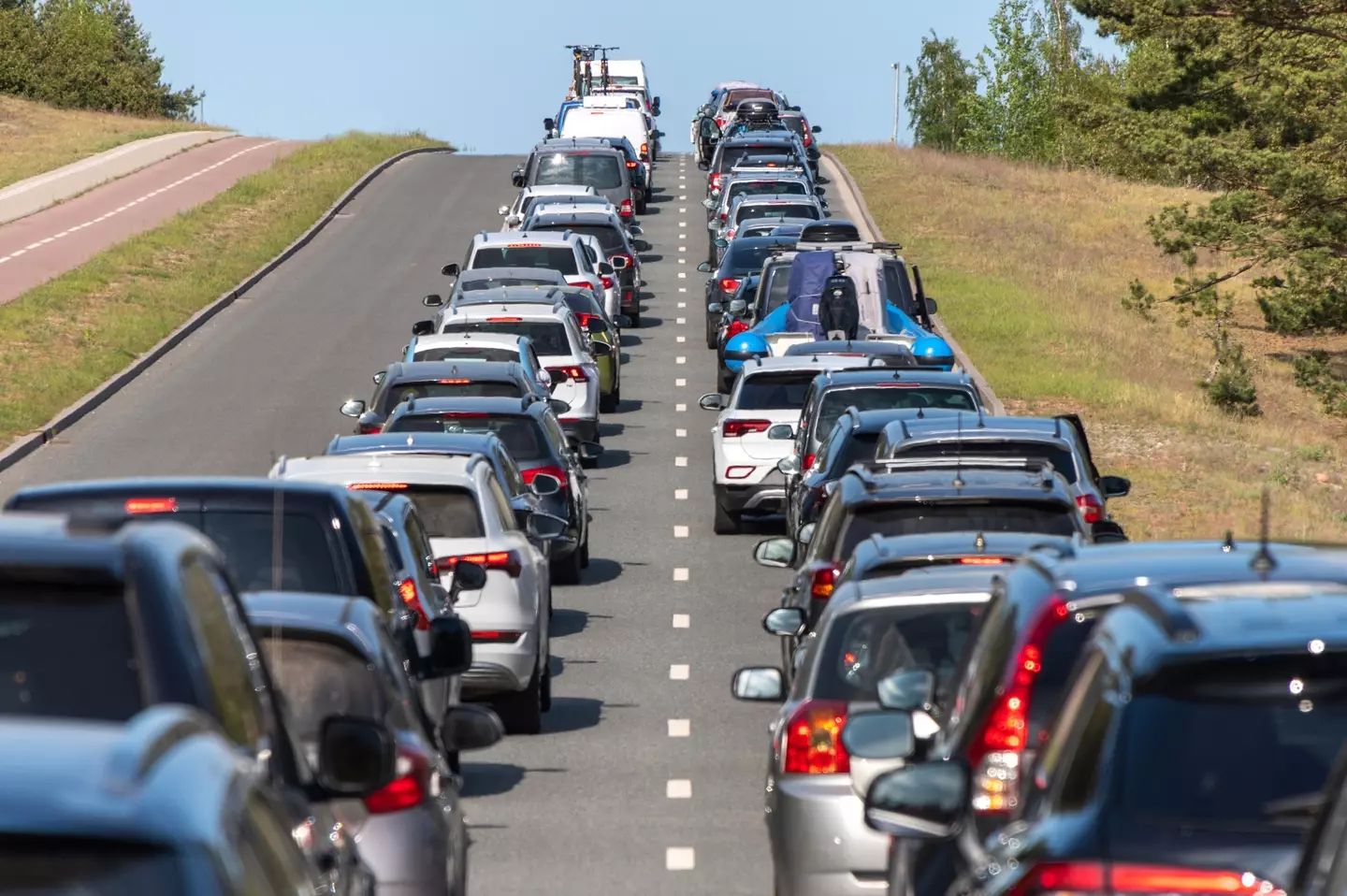
Scientists have issued a series of warnings ahead of today's highly anticipated solar eclipse.
It's expected that thousands of Americans will be travelling to the eclipse's path of totality, which will pass through cities such as Mazatlán and Torreón in Mexico; San Antonio, Austin and Dallas in Texas; Little Rock in Arkansas, and Indianapolis in Indiana.
With this in mind, people have been warned to expect hours of congestion.
Aixa Diaz, a spokesperson for the American Automobile Association, warned USA Today readers: "Pack your patience, whether traveling a great distance or locally, people will be out and about to catch a glimpse of the eclipse."
In previous total eclipse moments, for example in 2017, some areas were reportedly hit with 13 hours worth of congestion.
Advert

With the roads being increasingly busier than usual today (April 8), people have also been warned of a potential increase in fatal car accidents.
There was a 31 percent increase in fatal traffic accidents during the 2017 total eclipse, Fox News reports.
But it isn't as a result of the brief darkness that we're plummeted into during the eclipse itself, but because of the increased amount of cars on the roads in the run up to the historic moment.
Advert
The findings come as part of a new study that was published last month.
Donald Redelmeier, lead investigator of the study and a senior scientist in the Tory Trauma Research Program at Sunnybrook Research Institute said: "We found a significant increase in traffic risk in the US around the time of the total eclipse, averaging to one extra vehicle crash every 25 minutes and one extra crash fatality every 95 minutes.
"The total amounted to 46 extra deaths linked to the eclipse."

Advert
Noting that it's not the lack of light that causes the issue, Redelmeier further explained: "The findings likely derive from increased traffic, travel on unfamiliar routes, speeding to arrive on time, driver distraction by a celestial event, drug-or-alcohol-impairment from related celebrations, or eclipse viewing from unsafe roadside locations."
In light of this, John Staples, co-investigator on the study and a clinical associate professor in the department of medicine at the University of British Columbia, has recommended that people 'respect speed limits, minimize distractions, allow more headway, wear a seatbelt, and to never drive impaired'.
The eclipse will begin in Mexico at about 9.51am MT before crossing into Texas at 12.10pm CT.